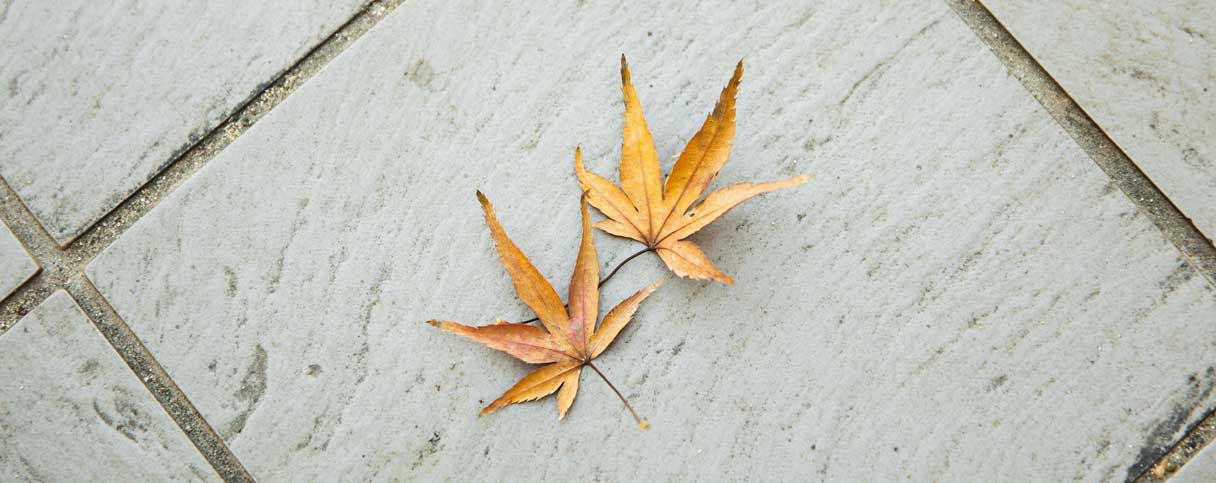
Garage floor
Tiles, coatings, coverings, and the rest: What kind of garage floor do you want?
A garage floor is bound to get liquids, dirt and leaves on it, but it still needs to last a long time. A bare concrete slab is still the classic choice. But some other options for garage floors have come to the fore in recent years, including coatings and coverings, tiles, and PVC. One reason is because a concrete slab can crack over time, or exhibit other signs of wear and tear. There’s no single answer to the question of what kind of floor is right for a particular garage, and any decision would need to be based on detailed specific knowledge. This blog post sets out some options.
Tiled floor
The main advantages of a tiled garage floor are that it is good-looking and easy to clean. It is, in addition, resistant to oil and chemicals, providing the subsurface with permanent protection against those and other impacts. Split tiles or porcelain stoneware are particularly suitable for the purpose, as they are hard, pressure- and abrasion-resistant, water-proof and frost-proof. Moreover, the burnt surface provides natural slip resistance. A slip-proof finish should general be a top priority when choosing tiles. The look is important, too, of course. Grey tiles, for example, make dirt less visible, while dark tiles impart a sophisticated look. But what actually is the difference between porcelain stoneware and split tiles? The former are ceramic tiles made of clay, feldspar and sand, which are usually used unglazed. But there are also glazed and burnished models. The joint width should be at least two to three millimetres, so that the grout adheres optimally to the slab sides and movements of the subsurface can be better absorbed. Split tiles, on the other hand, are coarse ceramics made of high-quality clays and mineral substances. As these elements shrink more during the firing process than fine ceramic tiles, they are less dimensionally stable. They therefore require wider joints, but are just as frost- and acid-resistant, and resilient too.
Garage floor coating
Another option is to apply a coating to the garage floor. This makes it just as easy to clean, features good impact, scratch and shock resistance, and provides a seamless, even look. The classic garage floor coating is synthetic or epoxy resin. This two-component material is applied as a liquid in two layers, and can enhance almost any subsurface. Epoxy resin hardens within one day, and can be used (and driven on) after a few days. A key factor is that the subsurface must be clean, grease-free, and not cracked. This significantly extends the useful life of the garage, and makes the garage floor resistant to dirt, oils and chemicals. The disadvantage: There may be a risk of slipping unless slip-resistant components are added. Likewise, the time needed for the resin to fully set must be taken into account. On the other hand, garage owners have a wide range of design options to choose from, because epoxy resin can also be coloured or supplemented with glass beads for slip resistance.
Concrete floor seal
You can also opt to install a – usually transparent – seal on the concrete floor. This is also made of synthetic resin, though a single-component one. It likewise requires two layers. The result is a more resilient floor that is less impacted by moisture and dirt. Nevertheless, a seal offers less protection overall than a coating.
Garage floor with covering
A sealed, resilient garage floor surface can also be achieved by a covering. Most people opt for PVC, usually in tile form. The synthetic tiles are available in a variety of colours, and some feature anti-slip dimpling or ribbing. The PVC elements are glued to the concrete floor. They do not need to set or dry, so the garage can be driven on immediately. They create a durable, easy-care subsurface. The key factor for these elements, too, is that the floor must be clean and have load-bearing strength.
Don’t forget other important component elements
The right garage floor forms the basis for a sound garage. But don't forget the other important fixtures and fittings. If you are going to be spending a lot of time in the garage, you might need a window to let in more light, a smart lighting concept, or a heating system. The garage door is another essential element. It has to work smoothly 365 days a year, and prevent uninvited guests from gaining access to your belongings. Our garage doors can do all that. And much more. Get advice from a dealer near you!